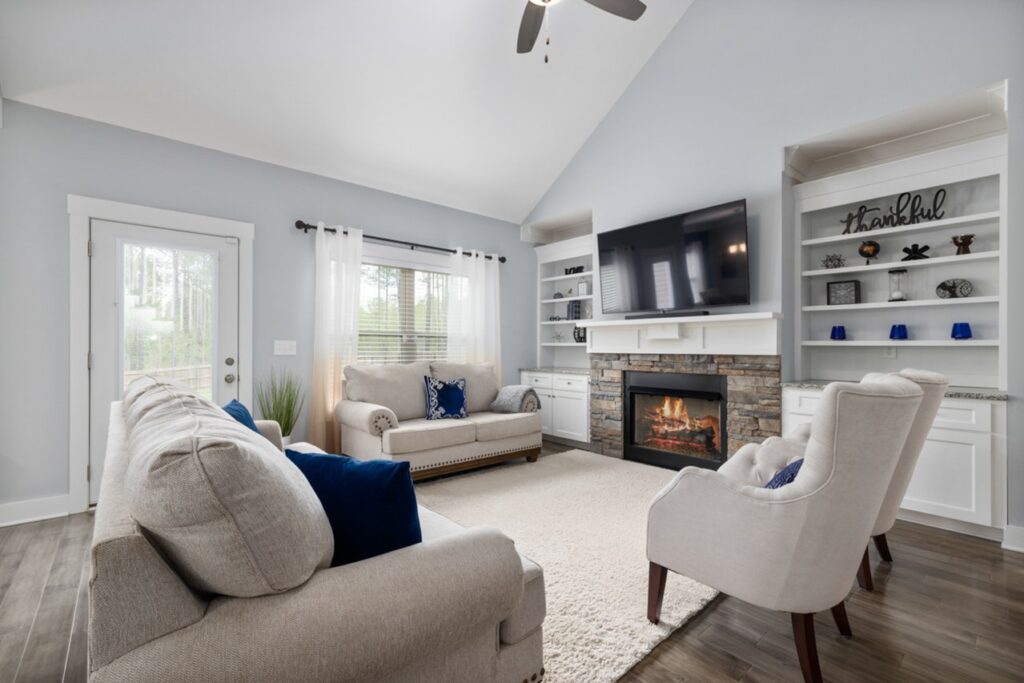
Investing in a residential property to rent out to tenants is a great way to build passive income. Of course, renting out rental properties isn’t your only option. You can also buy fixer-uppers to renovate and flip for profit.
However, as a first-time property investor, you need to slow down and make sure you do everything by the books. Jumping headfirst into real estate investing without experience or knowledge is a good way to go bankrupt.
We don’t want to see that happen to you. Keep reading to learn about six factors you must consider before investing in a residential property.

1. Your Budget
First, let’s take a look at your finances. If you’re purchasing a residential property through savings or a trust fund, it’s a matter of deciding how much money you want to invest.
If you’re like most people, however, you’ll need to borrow money or take out a loan. In this case, the first step is to get preapproved to determine your loan eligibility.
Talk to your bank and other lenders to get a handful of preapproval letters. Some lenders will be able to offer better interest rates or higher loan amounts.
If you can’t get approved for as much money as you want, you have several options to increase your eligibility. First, you can take a step back and spend some time improving your credit score. Alternatively, find a business partner or someone else who is willing to co-sign the loan with you.
2. Total Costs
Getting preapproved and learning how much you can afford to spend on a residential property is important. However, you also need to do some homework to identify your total costs. For example, purchasing a property will likely entail realtor fees and closing costs. Consider geographical factors also, if you’re buying a property on a waterfront or perhaps have a pond on the plot. Consider that you may want to invest capital into aquatic management services as part of your renovation on the property. By using such services to improve the adjoining features of the property, you’ll improve the appearance and quality of the land, thus increasing the value of your overall investment.
Once you acquire the property, you’ll be paying property taxes, maintenance costs, HOA fees (if applicable), and more. Can you afford the residential property if you don’t have any tenants paying rent?
If you are buying a fixer-upper, your costs will also include repairs and renovations. Fix-it and flip-it real estate investing also means paying realtor fees and closing costs again once you sell the property.
3. Investment Property Options
As a real estate investor, you have a number of viable options. Even if you aren’t looking into commercial properties, there is a wide range of residential property options.
The simplest option is to invest in a single-family home. You can rent these homes out for a few hundred dollars more per month than what you owe on the mortgage. If the mortgage is paid off, you can charge however much you want and pocket the earnings.
There are also multi-family homes like duplexes and apartment complexes. You can also look into single condo units. Ultimately, your professional goals and budget will determine what you should or shouldn’t invest in.
The local real estate market will also affect your investment property options. Check out more here to learn about real estate investing in Austin, Texas.
4. Investment Purpose
Now, let’s talk about you as a real estate investor. What purpose or intent do you have? How do you want to earn money from real estate investing?
Purchasing a residential property to fix and flip will award you with a large sum of money upon selling the home. However, this is a one-time payoff. Once you sell the home, it’s no longer an asset that can bring in money.
Fixing and flipping homes also takes a lot of work. You’ll need to make friends with local contractors to ensure the renovations are professional and you aren’t getting taken advantage of. You don’t want to lose all of your earnings to contractors and materials.
On the other hand, you can invest in a residential property to rent out to tenants. This will provide a stable source of passive income, though it does mean waiting a long time to see a return on your investment. It is also worth acknowledging that when you are selecting the appropriate tenants to rent your property, there are steps you can take to ensure that you won’t be dealing with any problems in the future. Hire a Professional people tracing service to do a background check for further peace of mind.
With enough rental properties, however, you won’t have to work at all. You can earn a handsome income via rent checks. This method will also ensure a comfortable retirement.
5. Real Estate and Landlord Laws
Being a good landlord isn’t easy. There are a ton of landlord laws and responsibilities you’ll be held accountable for.
It’s up to you to provide renters with high-quality living standards. This means keeping up on maintenance and taking care of repairs as soon as damages and other issues are reported.
There are also laws in place that dictate how you go about collecting rent, evicting tenants, and more. Operating outside the confines of the law can lead to serious consequences.
Make sure you understand the landlord laws specific to your area before investing in a residential property. Are you prepared to take on the duties of a landlord?
If the answer is no, there are property management groups that can handle all of your landlord duties for you. If you don’t want to play an active role as the property owner, you won’t have to lift a finger. Of course, these services come at a cost.
6. Your Potential Return On Investment
Finally, when choosing a residential property to invest in, you need to look at the bigger picture. What is the expected return on your investment?
If you’re buying a fixer-upper, how much money do you need to invest to get the home ready to sell? This includes the cost of the home, repairs, renovations, realtor fees, and closing costs. Once all is said and done, what will be your total revenue?
If you’re purchasing a rental, how long will it take for you to pay off the investment and start earning income from the property? Can you start earning money now by charging more for rent than your mortgage payment?
These are important factors to consider. You don’t want to bite off more than you can chew. Nor do you want a property that will end up costing you money.
Looking for a Residential Property Investment?
There’s a lot to think about before investing in a residential property. Take your time, do your homework, and follow the tips listed above to avoid making any mistakes.
And if you’re looking for more real estate tips or investment advice, we’re here for you. Take a look through some of our other blog articles before you go to find more helpful information.


